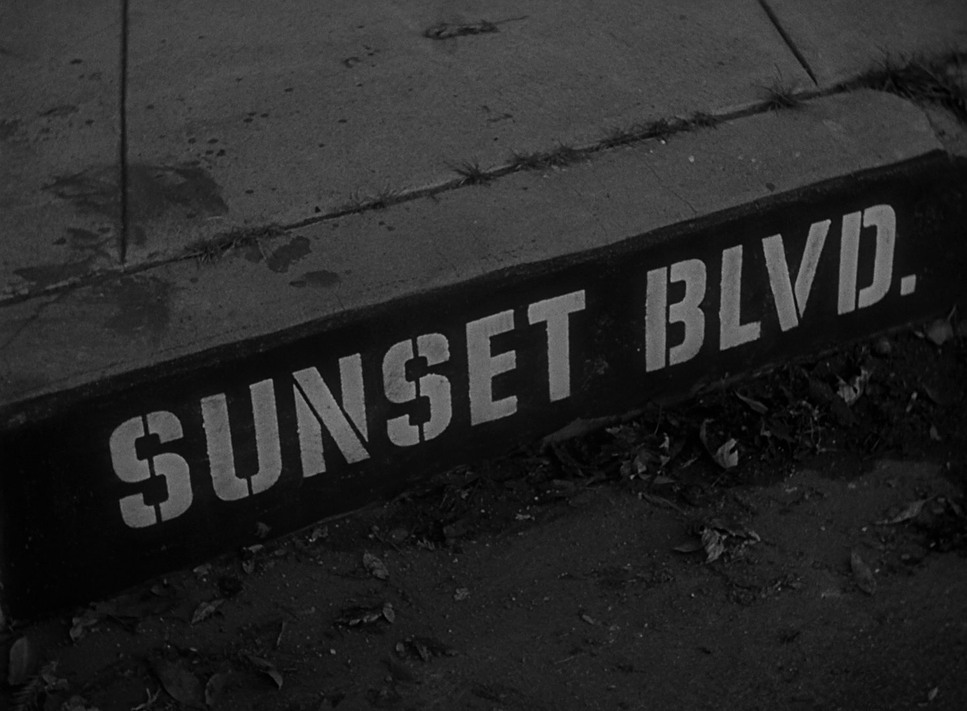
What Ever Happened to Norma Desmond?
While Billy Wilder’s Sunset Boulevard (1950) is not a film that presents itself as a comedy, the audience at the Cinephile Paradiso screening erupted into laughter many times. While being one of his more surprisingly funny films, Sunset Boulevard is also tinged with sadness. The humour and sadness can both be attributed to Gloria Swanson’s bravura and camp performance as the iconic silent film star Norma Desmond, an actress whose heyday has long since passed. There’s a tinge of irony in Swanson playing Desmond as she too was a star of the silent film era. Even though the film is almost 75 years old, the themes dealt with are unfortunately as relevant today as they were when the film was initially released in 1950.
Joe Gillis (William Holden) is a struggling screenwriter dodging his creditors stumbles upon a decrepit Hollywood mansion. Upon entering the mansion, he discovers it belongs to an ageing Hollywood star, Norma Desmond. She mistakes him for an undertaker, whom she is expecting to help bury her recently deceased primate friend, no joke. Upon discovering the truth and realising he is a writer; Norma offers Joe the role of adapting a story she’s written into a screenplay that could ensure her triumphant (in her mind only) return to silver screen. Joe becomes embroiled in a complicated relationship with Norma, one we are aware will end with his death as the film opens at the scene of the crime before flashing back.
One of the most interesting aspects of Wilder’s film is its commentary on the film industry, particularly its treatment of women. Norma is an actress that was once one of the biggest stars in the world, if not the biggest. Now she’s a recluse in her old mansion, waiting for that big comeback, although she hates that word. The system has discarded her like a piece of trash because she has aged and she’s no longer the ingénue she once was. This is something unfortunately still relevant today, and something that can easily be linked to a previous Cinephile Paradiso screening, What Ever Happened to Baby Jane? Norma Desmond is of the same belief as Joan Crawford and Bette Davis were when making their 1962 thriller, if an older woman in Hollywood wants a juicy role, she must make it happen herself.
The film is filled with dialogue and narration that makes the film play almost as a parody of noir. However, Wilder reins the film in before crossing the line of parody with the tragedy surrounding Norma’s life. While Norma is a larger-than-life character, the moments of vulnerability scattered throughout are what make her one of the most interesting characters of 50s cinema. Norma has been completely broken down by the Hollywood system that now ignores her, though she keeps a brave face on throughout. Norma refuses to believe in the faults of the Hollywood system that chews up and spits out ingénues. Her mind has become warped by the idea that the industry and audience are clamouring for her return. This is never clearer than in the final act when Norma is about to be (SPOILER ALERT) arrested for the murder of Joe, she is descending the staircase to be met by what she views as adoring fans and a film crew. In reality, it’s the local press and police force. “Alright Mr. DeMille, I’m ready for my close up.” she says as she’s led towards the police in the film’s most iconic and endlessly quoted scene. This scene is both camp and tragic in equal measure as we experience just how big Swanson’s performance is while also witnessing just how detached from reality Norma really is.
The desperation that the film industry causes can be seen in the character of Joe as well as Norma. The earlier section of the films shows Joe practically begging for work so that he can keep his head above water. Debt collectors attempt to hunt him down while he’s searching for work. Joe winds up taking the work with Norma, something he knows will not come to fruition so that he can have some sort of income. Taking this role also means Joe becoming involved in a relationship that he is somewhat ashamed of. While he is content to take advantage of Norma’s wealth, he can hardly acknowledge the reality of what is happening with others. Joe realises the level he has stooped to when he is confronted with the fact that Norma loves him. Joe’s attempt to regain his integrity may be his downfall though as Norma is unwilling to let him go due to how far he has let this act go on.
Sunset Boulevard may not be the only film to deal with the aftermath of Hollywood moving away from the silent era, Singin’ in the Rain takes a much more light-hearted look at a similar topic and more recently, Damien Chazelle’s Babylon showed the ever-changing landscape of film. Wilder’s film is definitely one of the darkest looks at the era. This film could be viewed as a horror story of the true nature of the Hollywood star system and a haunting look at what comes of the stars that time forgot. Anchored by a show-stopping performance by Gloria Swanson, Sunset Boulevard’s brutal honesty about misogyny Hollywood makes it one of the finest films of the 1950s, as well as a film way ahead of its time. Comic, haunting and tragic in equal measure, this is a perfect film that critiques the system it is a product of.

